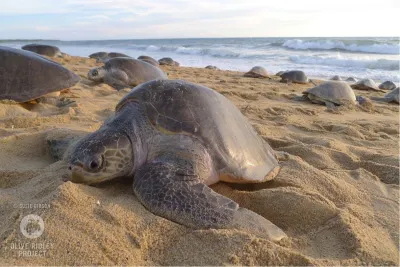According to a major new scientific review, our oceans could be restored to their former glory within 30 years. The report, which was covered in an article by The Guardian, speaks of rebounding sea life, from humpback whales off Australia’s coast, to elephant seals in America, and green turtles in Japan.
According to the article, humanity has inflicted severe damage on the oceans and its inhabitants for centuries, through overfishing, pollution and coastal destruction. However scientists now believe that by 2050, our world’s oceans could be restored to create a true renaissance for wildlife. With this, would come a bolstering of the global economies that rely on the ocean for food, coastal protection and climate stability. Scientists also say that although the cost of this restoration would cost billions per year, it would bring benefits 10 times as high.

The review, published in the journal of nature, discovered that global fishing is becoming more sustainable and the destruction of certain habitats, such as seagrass meadows and mangroves, is almost at a halt. From Tampa Bay to the Philippines, habitats are being restored.
The Guardian speaks of a huge success story in the migrating humpback whales of Antarctica. The population has surged from just a few hundred in 1968, before whaling was banned, to over 40,000 today. Another glimpse of hope is shown in the sea otters of Western Canada, where population numbers have gone from dwindling in the hundreds to now thriving in the thousands.
“We’re beginning to appreciate the value of what we’re losing and not just in terms of intrinsic beauty of the wildlife but in terms of protecting our livelihoods and societies from bad things happening, whether that be poor water quality in rivers and oceans or sea level rise beating on the doorstep of coastal areas,” said Roberts.
Unfortunately, progress is not linear and far from straight forward. Destructive fishing practices are still taking place, waters are reaching record high temperatures and pollution is still being poured into our oceans.
Roberts explains, “When I started working on the science of marine protected areas in the early 1990s. It was very much a niche interest. Now it’s being discussed at the top level internationally and we have many countries signing up to expand protection to 30% of the world’s oceans by 2030, with the UK among the early adopters of the target.”
Marine protected areas (MPAs) were just 0.9% in 200, but now cover 7.4% of the world’s oceans, although the article said that they are not all fully implemented.
As stated in the original article;
The scientists’s review concludes that restoring the oceans by 2050 is a grand challenge that, with a global redoubling of conservation efforts, can be achieved: “Meeting the challenge would be a historic milestone in humanity’s quest to achieve a globally sustainable future.”
This story original appeared in an article by The Guardian.




